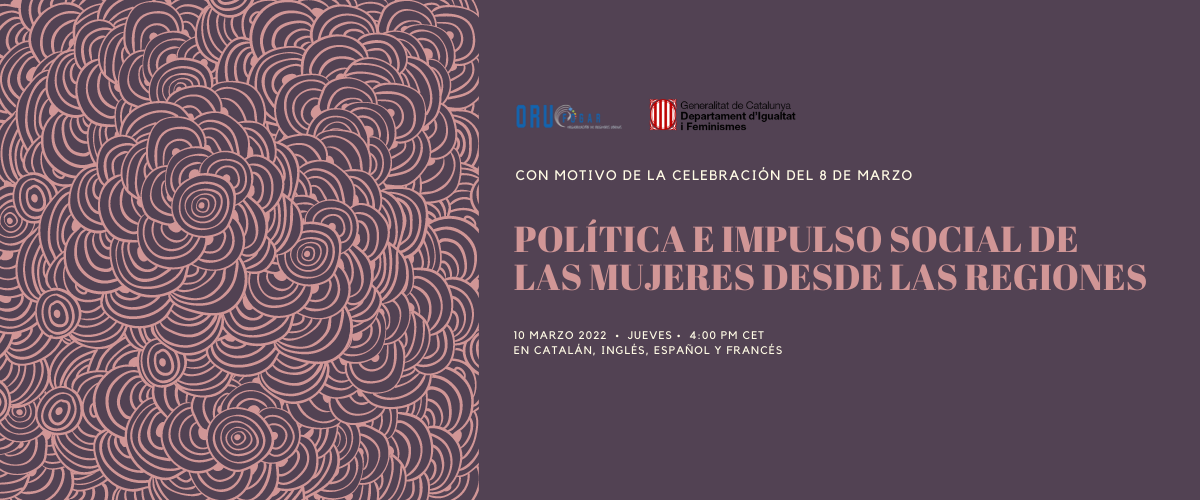March 8th. Regions and projects to promote women's participation

On March 10th, also on Women's Day, the Catalan Women's Institute and ORU Fogar organised a seminar during which the best practices of regional governments in favour of women's political and social participation were presented. The event was opened by the President of the Catalan Institute, Meritxell Benedí, who, after affirming the importance of feminism that "changes our lives on a personal and collective level", defended the usefulness of the exchange of experiences as such a meeting organized by ORU Fogar.
Women governors from different geographical regions participated in the first-round table. Mbarka Bouaida, President of the Association of Regions of Morocco, as well as President of the Guelmin Oued Noun Region, explained that in Morocco, the situation of women has improved a lot in recent years, also about political and social participation. She gave the figures of a female presence between 30 and 40% in the different levels of administration. And nowadays "it's no longer a testimonial presence -she said-, we now have women who are leaders”. However, "we must continue to increase these figures to really talk about a significant change," she concluded.
The Governor of Napo, Rita Tunay, a young leader of Kichua nationality, surprised everyone by explaining the high rate of gender-based violence in Ecuador, which she said affects 50% of women. She explained her policy of empowering rural women and how, in Napo, the second women's shelter in the whole country had been established to accommodate victims of violence and their children.
Gloria Falconi, Vice-Governor of Ayacucho, recounted how, in June last year, the Vice-Governors of Cajamarca, Ayacucho, Cusco, Tacna and San Martín formed the "Red de Mujeres Vice-gobernadoras del Perú" (REMUVIPE), to demand that, in the exercise of their functions, the female Vice-Governors receive equal treatment with that of male Vice-Governors. According to her, this situation in institutions has a lot to do with cultural models strongly marked by machismo, which are present in homes and even in educational institutions. She denounced women's lack of economic autonomy and the violence that too often leads to femicide.
A space dedicated to the presentation of good practices brought together the governments of Navarre and Catalonia in Spain, but also the regional government of Nawa in Côte d'Ivoire and the province of Cordoba in Argentina. The Institute for Equality of Navarra presented the project "Edad Hermosa, Adin Ederra", dedicated to the empowerment of older women, with the aim of making visible the most forgotten generations. The representative of Nawa explained her policy of empowering women in the region, where they produce 80% of agricultural production, but where they have no autonomy. Thus, the regional government provides them with different services, access to credit and ensures that their production is purchased.
Catalonia presented the Women's Parliament, an innovative and permanent space in which Catalan deputies meet with leaders of social movements to assess which laws and policies are needed to persevere towards the goal of equality. Finally, the province of Cordoba presented the "Programme of Assistance to Victims of Gender-Based Violence and Crime". A project with which the Argentine province seeks to reintegrate victims into social life, with particular attention when the victims are girls, young women, the elderly, people with disabilities or any woman in a vulnerable situation.
At the closing ceremony, UN Women Representative Cecilia Alemany highlighted the importance of subnational governments' work for women's social and political participation, and ORU Fogar Secretary-General Carles Llorens announced a seminar – like the one that closed – on 25 November, Gender Violence Day, during which good regional practices will also be presented.








































































